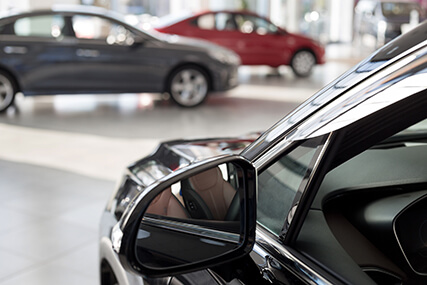If you’ve been shopping for a new car or truck, it’s very likely that you’ve seen some great pricing on auto advertisements. Most feel as if they are geared towards buyers with great credit and are often targeted to those who are interested in leasing, not buying. If you are trying to decide between leasing or buying, we’ve pulled together some things to know before you head over to the dealership to be entranced by that new car smell.
What’s Your Long Term Plan?
The main consideration when deciding to lease or buy is to figure out what your long term plan is. Are you a person who wants to keep an automobile for an extended time or are you looking for a new car regularly? Both have their own set of advantages.
What to Know About Leasing
- Leasing a new auto means that you won’t own the car, but will return it to the lease company at the end of the lease unless you decide to purchase it at that time. It also means that you’ll have a payment during the entire time of the lease and you’ll work with your leasing company for all financing. Did you know that UHCU offers access to leasing options as well?
- Like leasing a house or an apartment, an auto lease will likely require an up-front payment and security deposit. This can make that first month of leasing pricey if you haven’t budgeted for that cost.
- On the flip side of those upfront costs, monthly payments tend to be lower on leases than on outright purchases. Lease payments are essentially rental fees covering the cost of a car’s initial depreciation plus taxes.
- Because leasing is limited to new autos, you’ll have access to the newest technology and safety features. You’ll also have fewer maintenance issues to worry about since the auto will have less wear and tear. Leasing companies often have maintenance contracts during the life of lease.
- You may have mileage limitations during a lease. If you have a long commute or are a high-mileage user, this is something to consider and a good thing to discuss with one of our lending specialists.
- After the lease period you won’t have to worry about selling the car. You’ll have the ease of simply returning the auto to the leasing company. If you need to end the lease early, you may have some fees. Understanding the terms for returning the car early may be helpful.
Buying Basics
- You’ll have your choice of financing options. Financing through United Heritage gives you access to some of the lowest loan rates available, our excellent customer service and all the many benefits of membership. Our loan specialists can help you get pre-qualified before shopping so you’ll have buying power the minute you step foot into the dealership.
- The car may come with a maintenance warranty, but it may be limited by time, mileage and specific parts of the car. In the long run, you’ll have to cover any maintenance costs outside of that warranty.
- You’ll own the car at the end of the loan. You also may have ability to pay off a loan early if your finances allow for that.
- Customizing your new car is completely up to you. Some leases don’t allow for customization because the dealership wants the car to be easily resold after you return it. Ownership allows for you to make your car your own in any way you want.
The Bottom Line
No matter how you decide to finance your next car, United Heritage is always here to help you make the most sound financial decisions. We’ve got you covered for low interest financing, a quick and easy loan process, leasing options and all your auto insurance needs.

